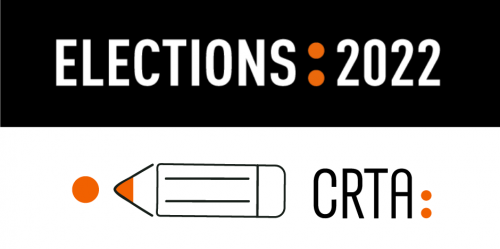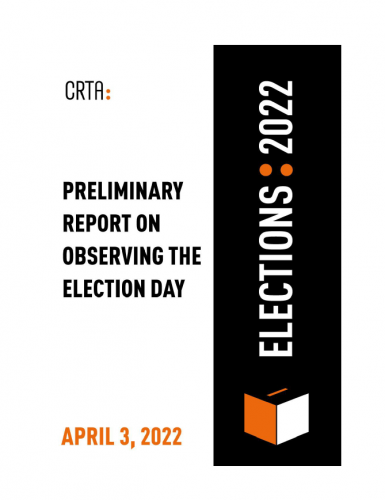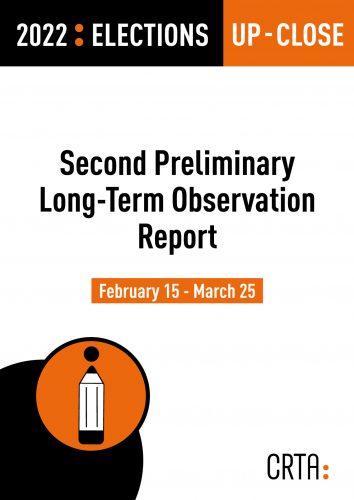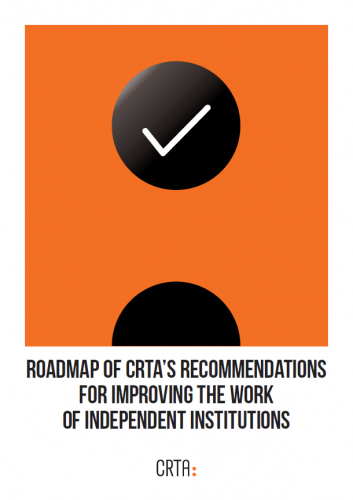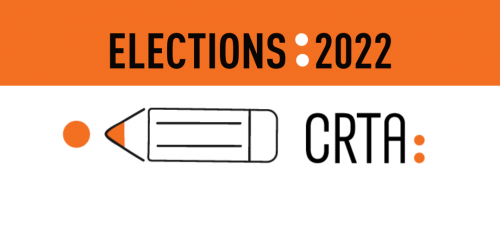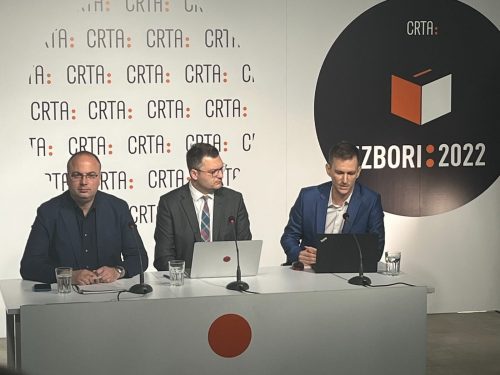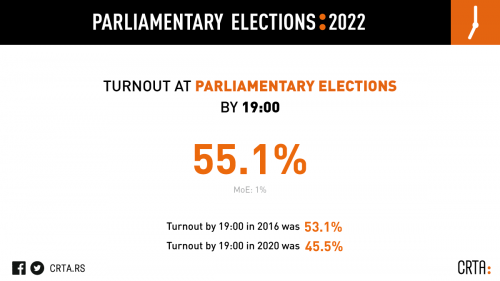CRTA invites experts to submit proposals for consultancy services in areas of communications, public relations and social networks outreach. The invitation aims to create the database of communications experts that would be engaged per need basis for provision of the expert support to CRTA and other civil society organizations in terms of strengthening their communications capacities.
CRTA’s Observation Mission monitored the parliamentary, presidential, and elections for members of the Belgrade City Assembly on the basis of two representative and random samples of 500 polling stations in Serbia and 450 in Belgrade.
The election of members of the Parliament of the Republic of Serbia, the presidential election, and local elections in 13 local self-government units, including Belgrade, were held simultaneously on April 3, 2022. The parliamentary and presidential elections were organized with the Republic of Serbia as one constituency. The parliamentary and local elections were conducted using a proportional electoral system, and parliamentary mandates are distributed by the system of the highest quotient between candidate lists that have crossed the electoral threshold of 3 percent of all valid votes. The presidential elections were conducted using the majority electoral system, through direct voting for presidential candidates.
The preliminary report of the Observation Mission on the quality of the election campaign for the presidential, parliamentary, and Belgrade city elections, which will be held on April 3, 2022, shows that the institutions responsible for law enforcement and protection of voting rights have not sufficiently contributed to protecting the public interest or achieving higher…
Recommendations for improving the situation in the areas in the competence of the Commissioner for Information of Public Importance and Personal Data Protection, the Commissioner for Protection of Equality, the Protector of Citizens and the Anti-Corruption Agency are the result of the long term monitoring and analyzing of activities of independent institutions. The subject of the Analysis is mostly the quality of the reports of the mentioned independent institutions and their recommendations, as well as the actions of the National Assembly according to the received reports. Therefore, the presented recommendations cover several different aspects of the functioning of independent institutions, with the common goal of improving the situation in the field of human rights and the fight against corruption. In order to improve the bigger picture, it is necessary to focus equal efforts on improving the practice of independent institutions, improving parliamentary procedures that should ensure the implementation of recommendations of independent bodies and acting on other recommendations. For this reason, the following recommendations by CRTA are aimed specifically at each of these actors: independent institutions, the National Assembly and other bodies of authority.
On the basis of processed data from 99 percent of polling stations, voter turnout in presidential elections elections is 58,6 percent (margin of error 1 percent). On the basis of processed data from 99 percent of polling stations, voter turnout in parliamentary elections elections is 58,7 percent (margin of error 1 percent). …
Election day went in an atmosphere full of tensions that on several occasions escalated into physical violence, manifesting the unpreparedness of election administration and the lack of citizens’ trust in institutions. Extremely poor organization of the voting process and tensions on the election day were the expected outcome of the continuous degradation of the integrity of the electoral process in its entirety, which was marked by strengthening and sophistication of mechanisms of electoral corruption, and endangerment of citizens’ voting rights.
A total of 55,1 percent of citizens voted in the presidential elections by 19:00 (margin of error 1 percent). In comparison, voter turnout by 19:00 in the 2016 parliamentary elections amounted to 53,1 percent, and 45,5 percent in 2020. On the territory of Belgrade, voter turnout by 19:00 in parliamentary elections is 52,2 (margin of error 0,6 percent), which is 4 percent points higher than in the 2018 Belgrade elections.
Our topics

Democratic culture
Because politics is not just for politicians. It is our human and citizen right to participate in the processes of making decisions which influence our lives. A dialogue has no alternative.

Free and fair elections
Because elections are the pillars of democracy. It is every citizen’s right to decide on whom to give his/her vote in free and fair conditions. Our vote is valuable and it can make a difference.

Open institutions
Because institutions serve the citizens. We need strong institutions with integrity which protect the public interest.

Free media
Because media should ask questions and critically analyse the reality. We need the media which protect the public interest and tackle the needs of the citizens.





